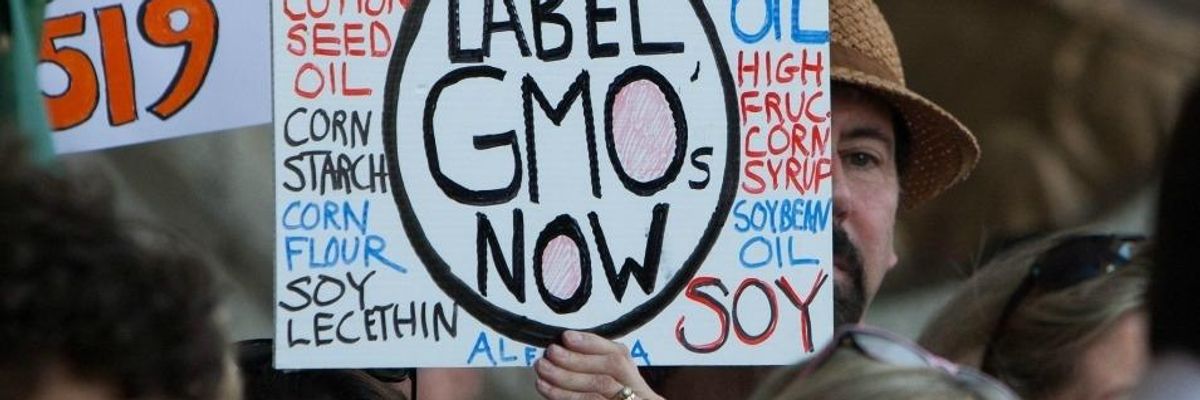Food safety advocacy groups objected to the Trump administration's latest assault on the country's agricultural regulatory framework as the Department of Agriculture announced Thursday it would leave oversight on GMOs to the companies producing the organisms.
"There is a need for adequate safeguards and effective regulatory oversight to ensure that there aren't unintended consequences to biodiversity from these new technologies," Aviva Glaser, director of agriculture policy at the National Wildlife Federation, said in a statement responding the rule, "but unfortunately, USDA's rule falls short of achieving this."
The new "SECURE rule" (pdf) would allow companies involved in gene editing (GE) to avoid government oversight if the companies themselves determine the editing involves modifications that could be achieved through traditional breeding. Critics charge that the new rule leaves that determination up to the companies themselves, removing two regulatory checks in one swoop.
"While some genetically engineered products are safe and beneficial, the federal government needs a regulatory system that tracks product development and ensures safety before products are marketed," said Center for Science in the Public Interest (CSPI) biotechnology project director Gregory Jaffe. "We support science- and risk-based federal oversight of genetically engineered plants to ensure they are safe to humans and the environment before they are released for cultivation or restoration, but today's final regulation does not achieve that result."
According to the CSPI, the rule change flies in the face of the desires of a broad coalition of interested groups:
Despite a unified position from environmental groups, consumer organizations, biotech crop developers, and food industry stakeholders imploring USDA to eliminate a provision allowing crop developers to self-determine whether their products are regulated, the Trump administration refused to require developers to even notify the agency of products they believe are exempt under the new regulations.
Center for Food Safety senior attorney Sylvia Wu said in a statement Friday that the USDA was trying to use a needed update to an outdated set of rules to push through yet another industry-friendly policy that could have ramifications for the country's food supply.
"While revisions to USDA's regulations--first drafted in 1987--are necessary in order to ensure that the regulatory scheme adequately addresses the harms associated with current GE technology, the new regulations finalized by USDA, paradoxically named the SECURE rule, are anything but secure," said Wu.
"Instead of fixing long-standing deficiencies and strengthening the regulatory system to guarantee proper oversight of new GE technologies and their associated risks, the revised regulations dramatically scale back USDA's regulatory authority, leaving most GMOs unregulated," Wu added.
Bottom line, said Consumer Federation of America director of food policy Thomas Gremillion, "consumers have a right to know how gene editing is being used to produce the foods they buy in the market."
"This rule will undermine public confidence in the food supply," Germillion said, "and ultimately set back beneficial uses of this technology."

